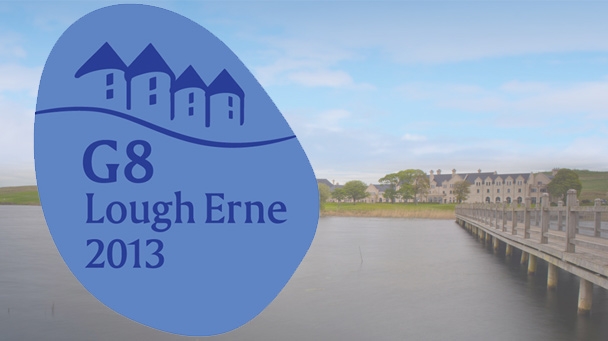
The annual G8 summit has wrapped up earlier this week. On Monday I posted about its expected agenda, now I’d like to briefly go through what’s been decided in Lough Erne in those two days.
- The EU and US came to an agreement to launch negotiations about what could be “the biggest bilateral trade deal in history” both in worth and in significance.
- After their main economic discussion, the G8 leaders highlighted the fight against unemployment as a priority in fostering global recovery. They agreed that after bright prospects in 2012, economic and financial difficulties remain in 2013 that require domestic and global action. All agreed that further actions needed towards stabilizing and strenghtening financial structures.
- The communique of the economic and financial discussion concludes on a very indefinite tone though: “We are all committed to make the necessary reforms in ourt own economies to support stronger financial systems, healthy labour markets, jobs and growth, and bolster world trade”.
- As for transparency measures, the leaders of G8 issued an action plan on the Common Principles to prevent the misuse of companies and legal arrangements. They also agreed to publish national Action Plans on such measures, as well as issuing public reports on a regular basis on the progress of their countries in countering money laundering and tax evasion. This might be a very important decision with meaningful effects if carried out.
- On another aspect of transparency the G8 leaders signed the Open Data Charter, in which they agree on principles regarding the publication of government data, escpecially from key economic areas.
- There was another communique on the kidnapping for ransom by terrorists and the preventive steps the international community can take. They agreed on joint cooperation with international organizations towards preventing terrorist groups in gaining funds from ransom.
- On Syria very broad terms were being used in the 2013 Lough Erne G8 Leader’s Communiqué. They expressed support of a conference to reach a political solution, emphasizing that the basis of peace talks should be the implementation of the Geneva Communiqué. They strongly condemned human rights violations and the use of chemical weapons, calling both sides to respect international human rights standards. They committed to make additional contributions in aid to meet the humanitarian needs in Syria and its refugee hosting neighbours. No surprise at all, that in the written agreement there is no mention of the form of aid to any sides of the conflict and no mention of Bashar Al-Assad and his future.
At the end of the summit, the G8 Leaders issued the Lough Erne Declaration to sum up the major conclusions of their talks.

